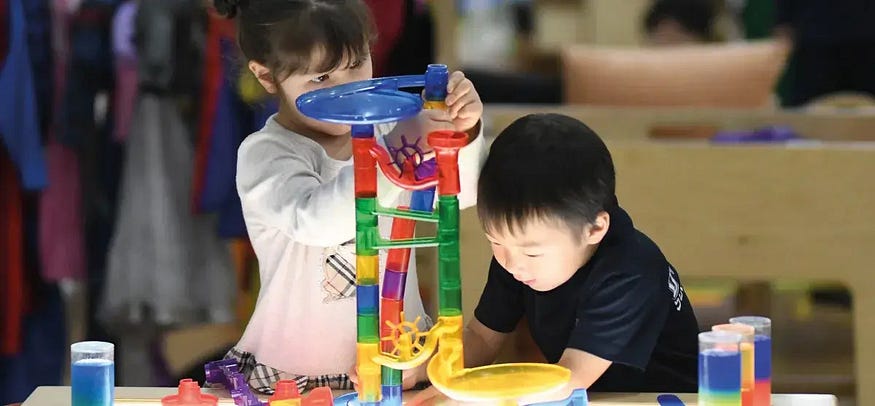How Does Early Play‑Based Learning Prepare Kids for Primary School?

In the earliest years of education, children are naturally curious, energetic, and full of questions. Play-based learning channels this curiosity into meaningful educational experiences, providing children with the foundation they need for success in primary school and beyond. Far from being unstructured or aimless, play-based learning especially within the IB Early Years Programme blends exploration with purposeful development in literacy, numeracy, social skills, and more.
A Foundation Rooted in Inquiry
At the heart of play-based learning is inquiry. Through activities like storytelling, building blocks, dramatic play, and hands-on experiments, children learn to ask questions, solve problems, and make connections. These early skills in observation, prediction, and reflection form the cognitive building blocks that are essential in primary education.
The IB Early Years Programme, as implemented in thoughtfully designed environments like those in leading international schools, emphasizes transdisciplinary learning. Young children are encouraged to explore ideas across subjects in a way that feels natural to them through play. This makes the transition to more formal academic settings smoother, as they are already familiar with learning through integrated and engaging experiences.
Developing Core Competencies Through Play
Play-based learning nurtures early literacy and numeracy in subtle, developmentally appropriate ways. For example, children might practice counting while setting up a pretend shop or develop storytelling skills while engaging in role-play. These activities boost vocabulary, number sense, pattern recognition, and fine motor coordination critical skills for primary school readiness.
Moreover, play encourages experimentation and resilience. When children build a tower that topples or try different strategies to solve a puzzle, they’re learning perseverance and critical thinking qualities that support academic success in more structured settings.
Emotional and Social Growth
Primary school readiness isn’t just about academics. Emotional regulation, collaboration, and communication are equally vital. In a nurturing, play-based setting, children learn how to work with others, express their feelings, and resolve conflicts. These social-emotional skills are cultivated through group activities, shared storytelling, and imaginative scenarios that encourage empathy and perspective-taking.
Classroom environments designed around the IB Early Years philosophy place strong emphasis on developing a well-rounded learner profile curious, confident, principled, and caring. Such environments equip children not only to learn, but to lead and collaborate effectively.
Building Confidence for Lifelong Learning
A positive, play-rich early childhood experience fosters a love of learning that can last a lifetime. When children feel safe to explore and express themselves, they become confident learners. This confidence becomes especially important as they enter primary school, where expectations and routines become more structured. Children who come from inquiry-based, play-oriented backgrounds are more adaptable, enthusiastic, and prepared to engage actively in new learning environments.
Conclusion
Early play-based learning, particularly when aligned with the IB Early Years Programme, is far more than just fun it’s a powerful educational strategy. At Dwight Seoul, this approach is thoughtfully implemented to foster inquiry, nurture holistic development, and instill core competencies. As a result, young learners are equipped with the skills, mindset, and confidence they need to thrive in primary school and beyond.
Comments
Post a Comment